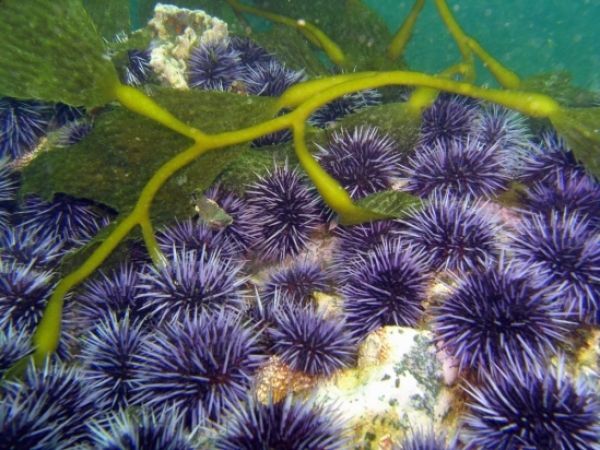Sea urchins have gotten a bad rap on the Pacific coast. The spiky sea creatures can mow down entire swaths of kelp forest, leaving behind rocky urchin barrens. An article in the New York Times went so far as to call them “cockroaches of the ocean.” But new research suggests that urchins play a more complex role in their ecosystems than previously believed.
A team led by Christie Yorke, a postdoctoral scholar at UC Santa Barbara’s Marine Science Institute, studied how urchins might function to break up tough kelp into more manageable pieces that can feed other scavengers, also known as detritivores, living on the kelp forest floor. The paper, published in the Proceedings of the Royal Society B, is the first to look at sea urchins’ role as shredders in the kelp forest ecosystem.
Urchins can have an outsized effect on kelp forests, especially when their predators aren’t around to keep their population in check, Yorke explained. Overhunting of the sea otter, one of urchins’ most significant predators, has allowed some urchin populations to clear cut vast tracts of kelp forest, drastically reducing the productivity and biodiversity of sites they’ve munched through. Some groups have even taken to indiscriminately smashing urchins to stem this scourge.
Read more at: University of California Santa Barbara
Purple sea urchins munch on kelp off the coast of California. Photo Credit: CHRISTIE YORKE


